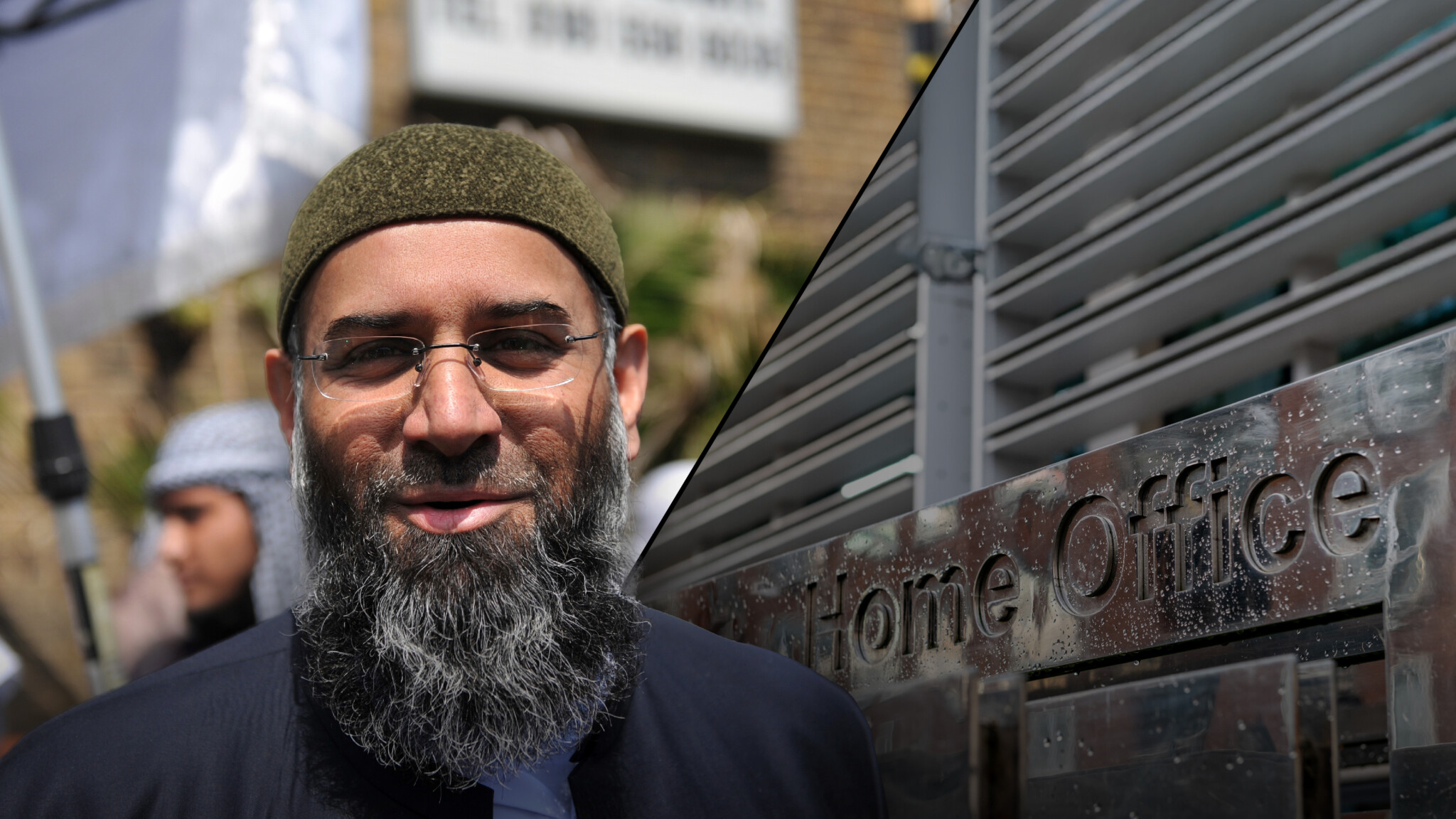
In August 2024, riots erupted in Labour constituencies following the murder of three children, and maiming of ten more, by Rwandan terrorist Axel Rudabukana in Southport. The new Home Secretary, Yvette Cooper, then instructed civil servants to conduct a “Rapid Analytical Sprint” to rewrite policies on extremism. She gave the Research, Information and Communications Unit (RICU), the parent-body of counter-extremism programme Prevent, this task. Both myself and GB News’ Steven Edginton reported on initial leaks from this document in November last year. The paper warned that “right-wing extremist narratives (particularly around immigration and policing) are in some cases ‘leaking’ into mainstream debates”. Among these narratives were “anti-communism”, “Cultural Nationalism”, and believing that “Western culture is under threat from mass migration”. The rape gangs, which continue to ruin the childhoods of thousands of girls in fifty towns and cities in the UK, were dismissed as a “grievance narrative” invented by “right-wing extremists”:
“right wing extremists frequently exploit cases of alleged group-based sexual abuse to promote anti-Muslim sentiment as well as anti-government and anti-‘political correctness’ narratives”
The full documents have since been procured by Policy Exchange, and new details published in January revealed the extent to which the government has been gaslighting the British public. Here’s how the UK’s ministry of propaganda was ideologically captured by Muslim activists.
The report, titled “CounterExtremism Sprint: Understand”, was jointly authored by Prevent, RICU, and Homeland Security Analysis and Insight (HSAI). It covers nine types of extremism, in the following order:
- Islamist extremism
- Extreme right-wing
- Extreme misogyny
- Pro-Khalistan extremism (Sikh separatism)
- Hindu nationalist extremism (Hindutva)
- Environmental extremism
- Left-wing extremism
- Anarchist and single-issue extremism (LASI)
- “Violence fascination”
- “Conspiracy theories”
Enjoy independent, ad-free journalism - delivered to your inbox each week
The breadth of the report indicates that Prevent doesn’t have its priorities right. As Policy Exchange authors Andrew GIlligan and Dr. Paul Stott remind us, Islamists are responsible for 94% of all deaths and 88% of injuries caused by terrorism since 1999; and comprise 80% of Counter-Terror Police and 75% of MI5’s open caseload, and 63% of terrorists in custody. Only 10% of Counter-Terror Police and 25% of MI5’s open caseload are “Far Right” extremists — a term redefined beyond recognition in recent years. However, the Prevent document only dedicates one page to Islamist extremism — the same as to “conspiracy theories,” Sikh separatism, misogyny, and environmentalism.
Only 160 words were dedicated to the sole case Islamist study of Anjem Choudary’s al-Muhajiroun: which had proven links to 25% of all convicted Islamist terrorists in the UK, by 2016. Neither the 2017 or 2019 London Bridge attacks were mentioned, despite being committed by al-Muhajiroun supporters. Choudary was finally imprisoned for life, for directing a terrorist organisation, belonging to a proscribed organisation, and encouraging support for a terrorist organisation, on the 23rd of July 2024. His is the only case of a conviction in the UK for Da’wah — ideological laundering of Islamist ideas, which inspires, but never actually commits, terrorist violence. This took decades, and Choudary was allowed to rebrand with multiple activist organisations, all while advocating for Jihad, the conversion of British monuments into mosques, and calling for the execution of Pope Benedict XVI.
More words (320) are spent on “Punish a Muslim Day”, which activist organisation Tell Mama report only resulted in one incident of school bullying. Prevent staff spent more time subdividing the “Manosphere” into Men’s Rights Activists, Pick-Up Artists (PUAs), and involuntary celibates (or incels) than on identifying Islamist extremists.
Sir William Shawcross warned in his Independent Review in 2023 that, although “Islamist terrorism is currently the largest terrorist threat facing the United Kingdom […] Prevent is not doing enough to counter non-violent Islamist extremism”. Between 2015 and 2019, referrals for Islamist extremism plummeted. Only 22% of Prevent referrals between 2020 and 2021 were for Islmaist extremism; outnumbered by “right-wing extremism” at 25%. The most were for “Mixed, unstable, or unclear ideology.” Today, the largest number of referrals (36%) are for the nebulous category “vulnerability present with no ideology or counter-terrorism risk”.
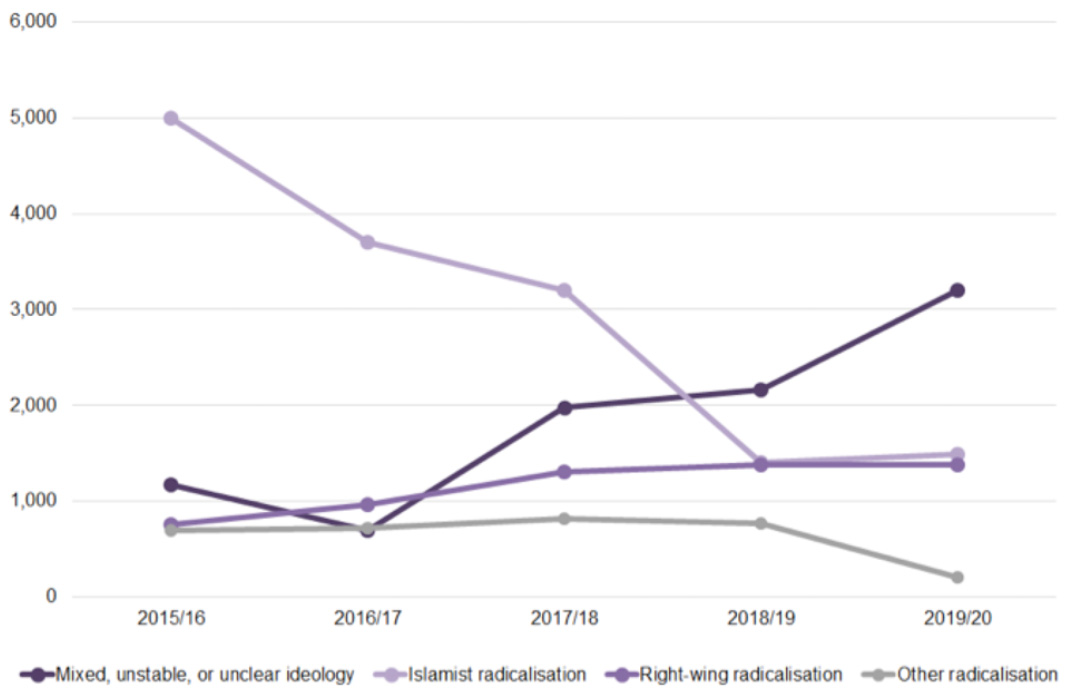
Shawcross said that Prevent staff were unwilling to consider Islam as a motivator of terrorism and extremist violence:
“When discussing Islamism, Prevent staff frequently came back to issues relating to mental health concerns and ‘vulnerabilities’. Ideology, if acknowledged at all, was treated as a secondary factor and a derivative of a wider psychological or social issue. Put simply, ideology was not seen as an essential part of the trajectory towards terrorism, instead it was viewed as one of many potential radicalising factors.”
Shawcross criticized “the present boundaries around what is termed by Prevent as extremist Islamist ideology” for being “drawn too narrowly while the boundaries around the ideology of the extreme right-wing are too broad”. These include putting Douglas Murray’s The Strange Death of Europe, John Locke’s Two Treatises of Government, J.R.R. Tolkien’s The Lord of the Rings, and George Orwell’s Nineteen Eighty-Four on a list of “actively patriotic and proud” texts frequently read by the “Far Right”. Colonel Richard Kemp criticized Prevent for “trying to emphasise far-right extremism rather than Islamic extremism […] In the interests of trying to appear even-handed and appease people that criticised the Prevent programme for focusing on Islamic extremists”. This desperation to increase the number of “Far Right” referrals, for political reasons, led to a 90% increase in the number of pensioners referred to Prevent.
Meanwhile, multiple terrorists were missed by Prevent. In 2021, Abi Harbi Ali stabbed Southend MP Sir David Amess to death at a constituency surgery. Abi targeted Amess, and other Conservative MPs, as “revenge” for “harming Muslims”, by voting for military action against Islamic State in Syria. Abi’s father, Harbi Ali Kullane, was the former director of media and communications for a former prime minister of Somalia, and worked on counter-extremism operations against al-Shabaab. A July 2024 coroner’s report found Ali was reported to Prevent in 2014, but “missed” his six-month case review, and had his case closed after a 12-month review reported “nothing of concern”. Amess’ daughter, Katie, said that her efforts to get an inquest into her fathers’ death were met with denial, dismissal, and threats of legal action from Prevent staff and her father’s former colleagues. She has since pushed for another Prevent review after it was revealed that Southport murderer Axel Rudakubana had also received three referrals to Prevent between 2019 and 2021, for his obsession with ISIS and genocides, but no action was taken. Prevent’s unwillingness to monitor Islamist terror, while focusing on an ill-defined “Far Right” threat, and obscuring motives by deflecting to mental health and family issues, is costing lives by failing to thwart massacres before they happen.
Why are Prevent so resistant to record Islamist extremism? Shawcross had warned that Jihadist groups were reconfiguring the priorities of Prevent, and softening it against Islamist extremism. He blamed proscribed group Hizb ut-Tahrir for a successful lobbying campaign since 2008. But this could only be possible if they had sympathisers setting Prevent policy from inside the Home Office. This was the case with Mohammed Kozbar, a member of the force’s London Muslim Communities Forum, who praised Hamas as “the master of the martyrs of the resistance” after October 7th.
According to whistleblowers, the Home Office has been hijacked by a 700-member Islamic Network who “promote the recruitment, retention and progression of Muslim staff in the Home Office” and “influence policymakers so that policy is more inclusive of Muslim needs”. One civil servant told GB News that
“Having an Islamic lobby group inside the Home Office represents a serious threat to the Government’s aims in combating Islamic extremism and granting asylum to those fleeing Islamic countries over religious persecution.”
After the Shawcross report was published, members of the Islamic Network attended a course called “Issues in Countering Terrorism” at King’s College London. One civil servant “argued Prevent is inherently racist because it focuses on Islamist extremism” — before pointing and laughing at a jihadist in an ISIS recruitment video, saying, “He used to go to my school! I know him!” The lecturer delivering the course described Shawcross as “the type of person who would say all current counter-terrorism professionals are woke…He is of that ilk”.
Perhaps the growth of this network has been influenced by the appointment of Muslims to positions of power within the Home Office. The current Director General for Immigration Enforcement, Bas Javid, is the son of Pakistani immigrants, and brother of former Home Secretary Sajid Javid. Likewise, the former government Counter-Extremism Commissioner, and Independent Adviser for Social Cohesion and Resilience, Dame Sara Khan, is the sister of the former Deputy Head of RICU, Sabrina Khan. Sabrina’s boss, Richard Chalk, was also chief of staff to former chairwoman of the Conservative Party, now Treasurer of the All-Party Parliamentary Group on British Muslims, Baroness Sayeeda Warsi. These hires may not be a result of ethnic, familial, or religious nepotism — but Prevent’s failings make it difficult to argue any of these people have done a good job.
Sara’s charity Inspire manufactured one of the “products” used by RICU in its “controlled spontaneity” programme: the stage-management of the government’s response to terror attacks, to quell public outrage and ensure “community cohesion”. An image of a Union Jack hijab, produced by Inspire, was published on the front page of The Sun newspaper on October 8th, 2014, after British aid worker Alan Henning was beheaded on video by ISIS. This was printed to “promote the true face of Islam among vulnerable UK communities” in the aftermath of Islamist violence. The same tactic was deployed following the 2017 London Bridge and Westminster Bridge attacks, and Manchester Arena bombing; and is suspected to have been used after the 2023 Nottingham stabbings, and 2024 Southport murders.
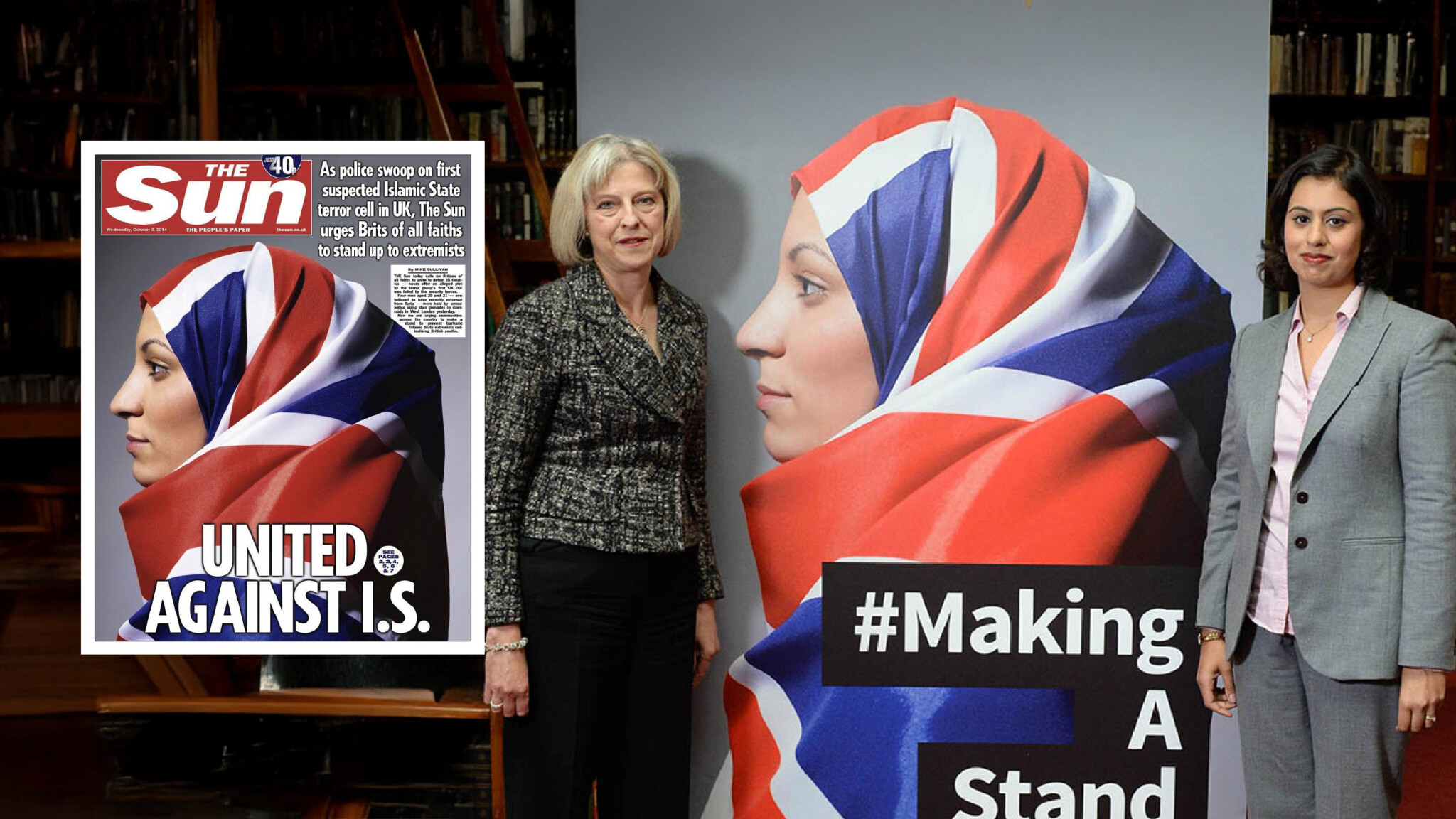
In December 2024, Sara Khan co-authored a report on “extremist narratives and conspiracies” with communist organisation HOPE Not Hate. Khan employed HOPE Not Hate to do the polling and provide definitions for types of extremism. HOPE Not Hate were previously given grants of £50,000 and £141,380 in 2019-2020 to “brief multiple departments… on emerging trends in UK hate”, while the Khan sisters ran RICU. Home Office-funded charity the Paul Hamlyn Foundation also gave HOPE Not Hate £585,000 over eight years to establish local pro-immigration protest groups in towns and cities across the UK (likely as part of “controlled spontaneity” efforts.) HOPE Not Hate are also infamous for crafting the All-Party Parliamentary Group on British Muslims’ definition of “Islamophobia”, which called the rape gang scandal an example of racism against Muslims:
“the issue of ‘grooming gangs’: […] clearly, it is aimed at (and can achieve) harm to individual Muslims, and is not rooted in any meaningful theological debate but rather in a racist attempt to ‘other’ Muslims in general,”
This explains the dismissal of the rape gangs as a “grievance narrative” by the new RICU report.
While the Khan sisters, Chalk, and Warsi may oppose Islamist terror — and have been criticized by Islamist groups — their commitments to multiculturalism, Muslim representation, and diversity, equity, and inclusion doctrines have opened the door to the proliferation of an Islamic activist network. Prevent has proven unwilling to pay close attention to Islamist extremism as a result.
Sara Khan has since focused her efforts on lobbying the government to proscribe Patriotic Alternative: a white nationalist group led by former BNP campaigner and self-professed “Nazi sympathiser” Mark Collett. While Collett’s views are repugnant, Patriotic Alternative have not been responsible for acts of violence or terror. Last year, deputy leader Sam Melia was sentenced to two years in prison for “intent of stirring up racial hatred” after putting up stickers in public. Some were innocuous statements about immigration; others were antisemitic. But none pose a comparable threat to the public as Islamist extremist groups which receive little to no attention by comparison. Khan and Prevent’s efforts remain misplaced.
Despite this, the “Understand” report dedicated 430 words to a sticker campaign (presumably Melia’s) — 270 words more than to the case study for Islamist extremism. Last year’s Prevent training video, encouraging viewers to refer 17-year-old boys to counter-terror police for posting anti-immigration stickers in public parks, proves just how absurd Prevent’s focus on nonviolent right-wing activism has become.
This is a real training module from a local council in England on what to do if someone who works there shares “anti-immigration views.”
— Lewis Brackpool (@Lewis_Brackpool) October 3, 2024
The answer according to the module? Call counter-terrorism police on them.pic.twitter.com/ssL89Je0u9
Khan also suggested the Home Office censor MPs like Nigel Farage for “using language that talks about distrusting the police or attacking an ‘establishment’”. In the “Understand” report, Prevent staff warned that
“claims of ‘two-tier policing,’ where two groups are allegedly treated differently after similar behaviour” are an example of a “right-wing extremist narrative” which is “leaking into mainstream debates.”
There are an inexhaustive list of examples of two-tier policing: from those involved in the Southport protests given longer sentences for Facebook posts than convicted pedophiles; to police arresting the victims of rape gangs, and the fathers who tried to save them, rather than the perpetrators for fear of being called racist. But most ironic is that Recommendation 18 in the “Understand” report, to “reverse the previous government’s code of practice” aimed at limiting the recording of mendacious non-crime hate incidents (NCHIs), relies on two-tier policing practices enshrined in British law.
NCHIs were introduced in 2014 by the College of Policing in its Hate Crimes Operational Guidance. After the Metropolitan Police were condemned as being “institutionally racist” by the 1999 Macpherson Report, all police forces in England and Wales sought to prove their antiracist bonafides by recording legal but offensive speech by members of the public. Despite no evidence of racism by the police ever being produced, thousands of NCHIs are recorded every year, preventing people from gainful public-sector employment. 34 police forces recorded 119,934 NCHIs between 2014 and 2019. This doubled to 250,000 between 2019 and 2024 — an average of 66 recorded every day.
Former Home Secretary Suella Braverman changed the law, attempting to discourage the recording of “trivial, irrational and/or malicious” NCHIs. However, the number recorded rose from 11,642 to 11,690 from June 2023 to 2024. Over 13,000 total were recorded last year, against doctors, vicars, and school-pupils — and yet Yvette Cooper remains resolute in her intent to record more. No evidence is required to log an NCHI either, as officers are warned not to engage in “secondary victimisation” by asking the complainant for evidence if they belong to a “protected characteristic” under the Equality Act (2010). So, there is a tier of victimhood in British law, which allows aggrieved minorities to anonymously accuse others of thought-crimes. The Home Office not only supports this, but seeks to make it worse.
Prevent staff also recommended criminal sanctions against offensive speech: suggesting a new crime of making “harmful communications” online. This was removed from the previous government’s Online Safety Act (2023), but the Centre for Countering Digital Hate (CCDH) proposed it be resurrected during the Southport riots. In a meeting with members of the UK Home Office, the Department for Science, Innovation and Technology, Ofcom, and the counterterrorism internet referral unit at the Metropolitan Police, the CCDH demanded “emergency powers” be granted to broadcast regulator Ofcom to police “misinformation online”. Keir Starmer’s new Downing Street Chief of Staff, Morgan McSweeney founded the CCDH — which interfered in the 2024 US election to “Kill Musk’s Twitter”.
Why are pointing out ideological disparities in policing of such concern? The answer lies in “behaviours and activity of concern” and “damaging extremist beliefs” listed in the “Understand” report, being blamed for “preventing integration” and “influencing racism and intolerance”. The accusation is that, if not for “right-wing extremists” pointing out the costs, crimes, and cultural differences of mass immigration, everything would be going just fine. This is a tacit admission that, without the constant surveillance and censorship of the British public, who oppose mass migration, the multicultural narrative will come apart at the seams. If diversity requires such a totalitarian state to sustain itself, how could it possibly be considered a strength? It seems only to benefit the professional activists who do the censoring, and who make a career out of advancing their sectarian Islamic interests at the expense of free speech for the rest of us.
The Home Office betrays its bias best when characterizing we who express concerns about illegal immigration as terrorists-in-waiting. The “Understand” report accused the “extreme right-wing” of “hijacking extant local grievances about perceived inequalities around access to resources (e.g. benefits, migrant ‘hotels,’ etc.)”. But a majority of the voting public oppose mass legal and illegal immigration. 90% of constituencies want legal migration reduced — even when underestimating numbers by a factor of ten.
Over 150,000 illegal immigrants have also been recorded crossing the English Channel from France, to break into Britain, since 2018. A recent estimate by Oxford University puts 1 in every 100 people in the UK as an illegal immigrant (745,000) — the highest in Europe. A leaked Thameswater report found 1 in 12 people in London (585,533) is an illegal immigrant — 60% of the national total. However, this data was compiled in 2017, and so is likely undercounting by a factor of two. In 2017, Pew Research estimated that 1.2 million illegal immigrants had overstayed their visas and were still living in the UK. In 2019, the former Director General for Immigration Enforcement, David Wood, disclosed that private Home Office estimates for illegal immigration were 150,000 each year; and that half of those whose asylum claims are rejected remain in the UK. So, it is not hyperbole to suggest there are over 2 million illegal immigrants currently in Britain.
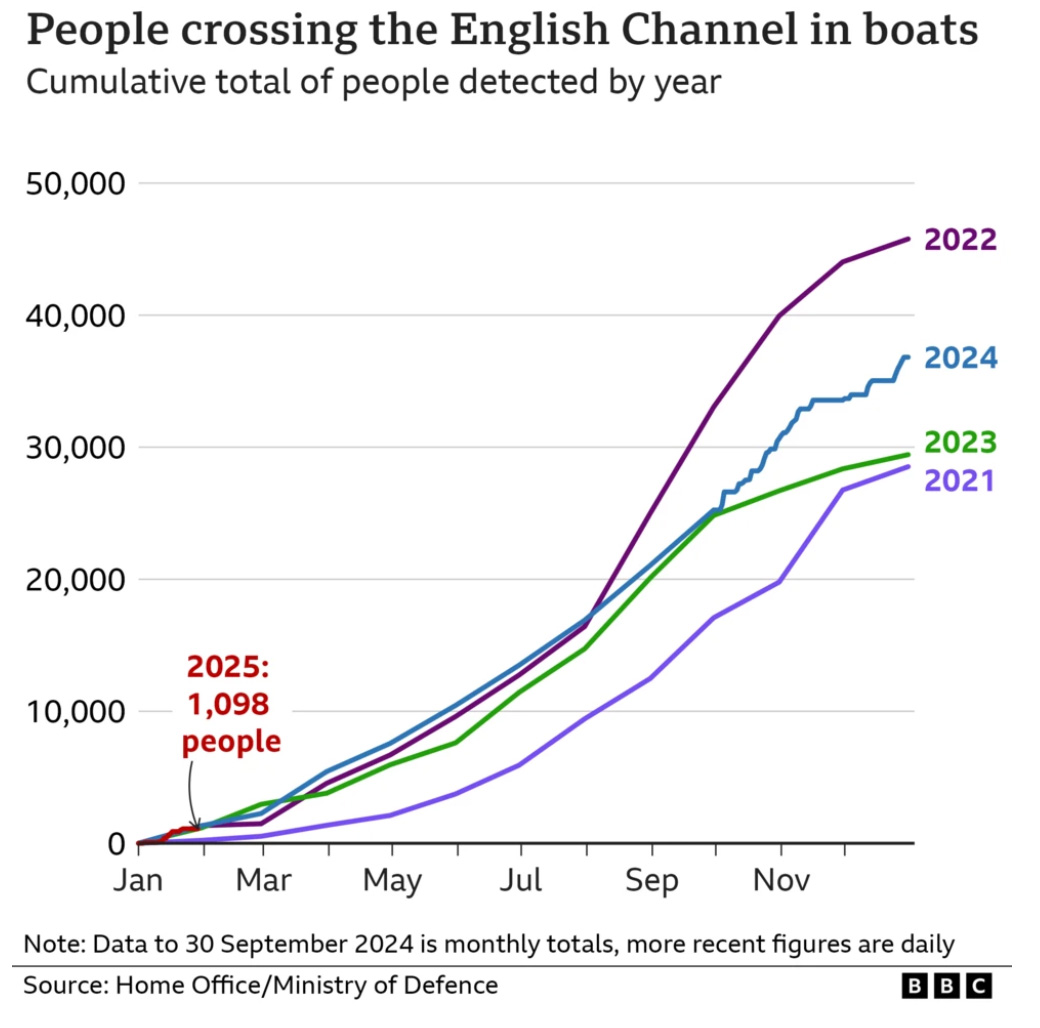
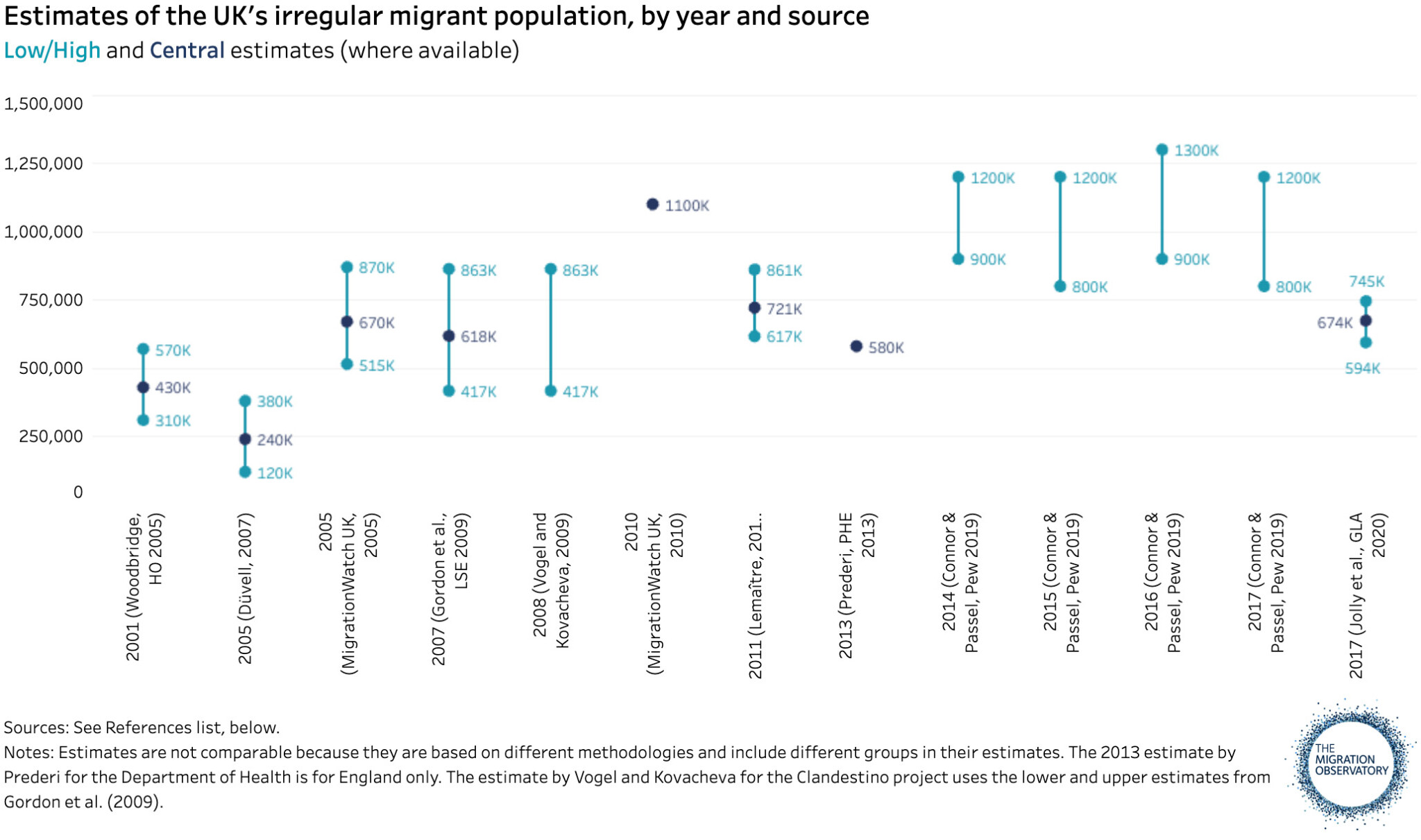
All of these estimates were before the unprecedented “Boriswave” of over a million legal immigrants entered Britain every year, largely from outside Europe. Despite the record number of visas issued, there is no data on the number of people recorded as overstaying their visa in the UK since 2021. The Home Office just stopped collecting data.
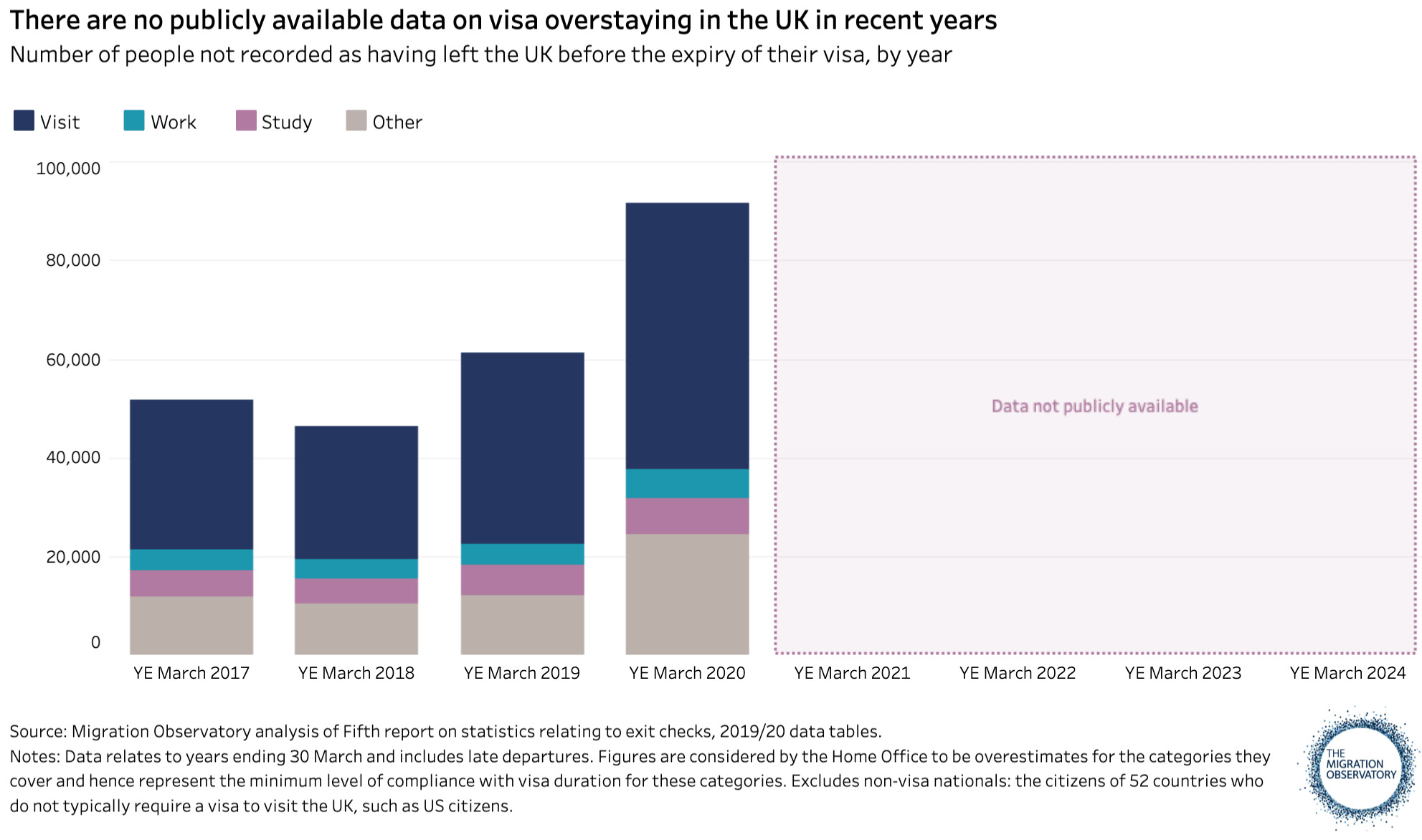
£14.4 billion was spent on these illegal immigrants in 2023. £4.3 billion of that was on accommodation costs alone — 28% of Britain’s annual foreign aid budget. These hotels and private rental properties, leased on five-year contracts, are furnished with satellite televisions. Over £3.7 billion (£3,000 a day) has been spent on clothes for illegal immigrants since 2022. Data for 2024 has been difficult to procure. Shadow ministers and MPs have been refused answers. But the Labour government is projected to add an additional £17.8 billion to that annual bill, by allowing “Any asylum seekers who are granted asylum [to] have full access to…the welfare system.” These proposed amendments to the previous Conservative government’s Illegal Migration Act (2023) will repeal the ban on processing asylum claims for illegal migrants who cross the English Channel in small boats. It will euphemize illegal immigrants as “unauthorised” or “irregular”, in line with the liberal progressive platitude that “No human is illegal.” Any other view is deemed “right-wing extremism” by the Home Office.
The British state is ideologically captured by a Muslim activist network, who gleefully gaslight you using your own taxes, and then call you an extremist for noticing. The Labour government has denounced the report twice: with Home Office minister Dan Jarvis saying he has “rejected this advice”. However, it remains a reliable forecast for where their priorities will lie for the foreseeable future. So long as the Islamic Network sets policy within the Home Office, the UK will be impaired in its efforts to defend itself against Islamist extremism. That Network will remain in place so long as the legislation which demands a DEI industry exist remains in place.
Britain’s “Deep State” began to grow when Tony Blair passed the Constitutional Reform and Governance Act (2010), and enshrined the Civil Service Code into law. Ministers could no longer appoint civil servants as heads of government departments; rather they could only rubber-stamp approval for civil servants appointed by other career civil servants. This closed system ostensibly ensures political impartiality; but in actuality creates a culture of ideological conformity, and puts the business of state on-rails no matter what party forms the government of the day. This means ministers cannot fire civil servants either — hence why Britain now has more civil servants per capita than communist China, and more DEI commissars than anywhere else in the world.
The Equality Act (2010) also makes hiring these DEI bureaucrats a requirement, under the “public sector equality duty”. Every government department is commanded to “advance equality of opportunity between persons who share a relevant protected characteristic and persons who do not share it” — mandating discrimination against heterosexuals, men, whites, and Christians, on behalf of racial, religious, and sexual-preference minorities. It also makes it almost impossible to fire them, when they can log discrimination complaints as members of groups with “protected characteristics”.
The presence of a member of the Charity Commission on the recommended Counter Extremism Ministerial Board also demonstrates an intent to double-down on DEI policies. The Charities Act (2011) enshrined in law the obligation for government to allocate taxpayer funding to organisations which pursue
“the advancement of human rights, conflict resolution or reconciliation or the promotion of religious or racial harmony or equality and diversity;”
Just like in the United States, this results in security agencies liaising with self-appointed community representatives, who idea-launder on behalf of Islamist groups. It also establishes identity interest groups, like the Islamic Network, who are most likely to give extremists purchase within the halls of power.
All such legislation must be repealed for the UK to rid itself of this auto-immune disorder of activists occupying its institutions. This includes the Constitutional Reform and Governance Act, Equality Act, Charities Act, and most contentiously, the findings of the Macpherson Report. Otherwise, the denial of reality and censorship of facts, by activists within the Home Office, will continue to unilaterally disarm Britain against Islamist threats.




Comments (0)
Only supporting or founding members can comment on our articles.